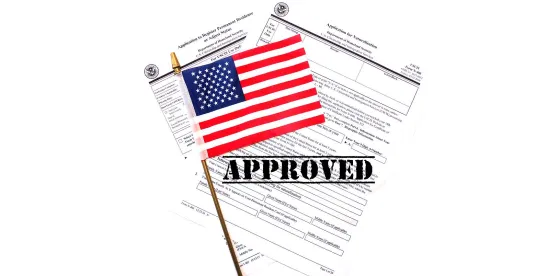Key Takeaways
- The U.S. government has begun “continuous vetting” of more than 55 million valid visa holders — a process that could result in revocations and deportations if violations are found.
- The initiative applies broadly to all visa categories, including employment-based, student and visitor visas.
- Employers should prepare for potential workforce disruptions, maintain compliance and proactively support visa-dependent employees.
The Trump administration announced that the State Department will systematically review 55 million individuals currently holding U.S. visas for violations of entry or residency requirements. This marks the first time such a sweeping review has been applied to people with previously approved visas, rather than just to new applicants. The initiative, referred to as “continuous vetting,” draws on government databases, law enforcement records (both in the U.S. and from the individual’s home country) and online activity to identify potential violations. Grounds for action may include immigration overstays, unauthorized employment, criminal activity, security risks or broader public safety concerns. Once flagged, a visa holder could see their status revoked and, if present in the U.S., face deportation proceedings.
As part of this program, visa applicants and visa holders will be subjected to social media vetting with officials looking for “any indications of hostility toward the citizens, culture, government, institutions or founding principles of the United States.” According to administration officials, the review is intended not only to enforce compliance but also to deter individuals who may seek to exploit U.S. visas for non-permitted purposes. The effort is being presented as a central part of a broader immigration crackdown, which includes stepped-up deportations and tighter restrictions on certain categories of work visas. Thousands of student visas were revoked under a similar review in May of this year over purported national security concerns, and officials suggest similar actions could be taken across other visa categories. The student visa revocations resulted in numerous legal actions due to inaccurate revocations based upon faulty data that was not validated before the revocations occurred.
Practical Steps Employers Can Take
For employers, this marks a significant shift: Lawful visa status no longer guarantees stability. Even employees holding valid visas may be subject to sudden review, creating potential disruption to business operations. While the scope of the initiative is still unfolding, there are practical steps employers can take now.
- Review workforce metrics as a key first step — keeping an updated roster of all foreign national employees, broken down by visa category, can help identify areas of risk.
- Strengthen compliance protocols by ensuring that all immigration records, I-9s and sponsorship filings are accurate and up to date.
- Develop contingency plans for critical roles is equally important, as it can minimize disruption if a visa revocation occurs unexpectedly.
- Communicate proactively with employees who may be concerned by the news of broad-based vetting, providing reliable information channels.
- Work with immigration and employment counsel to design protocols that allow employees to self-report any potential legal issue that could cause a visa revocation, giving employers to chance to address these issues proactively.




 />i
/>i

